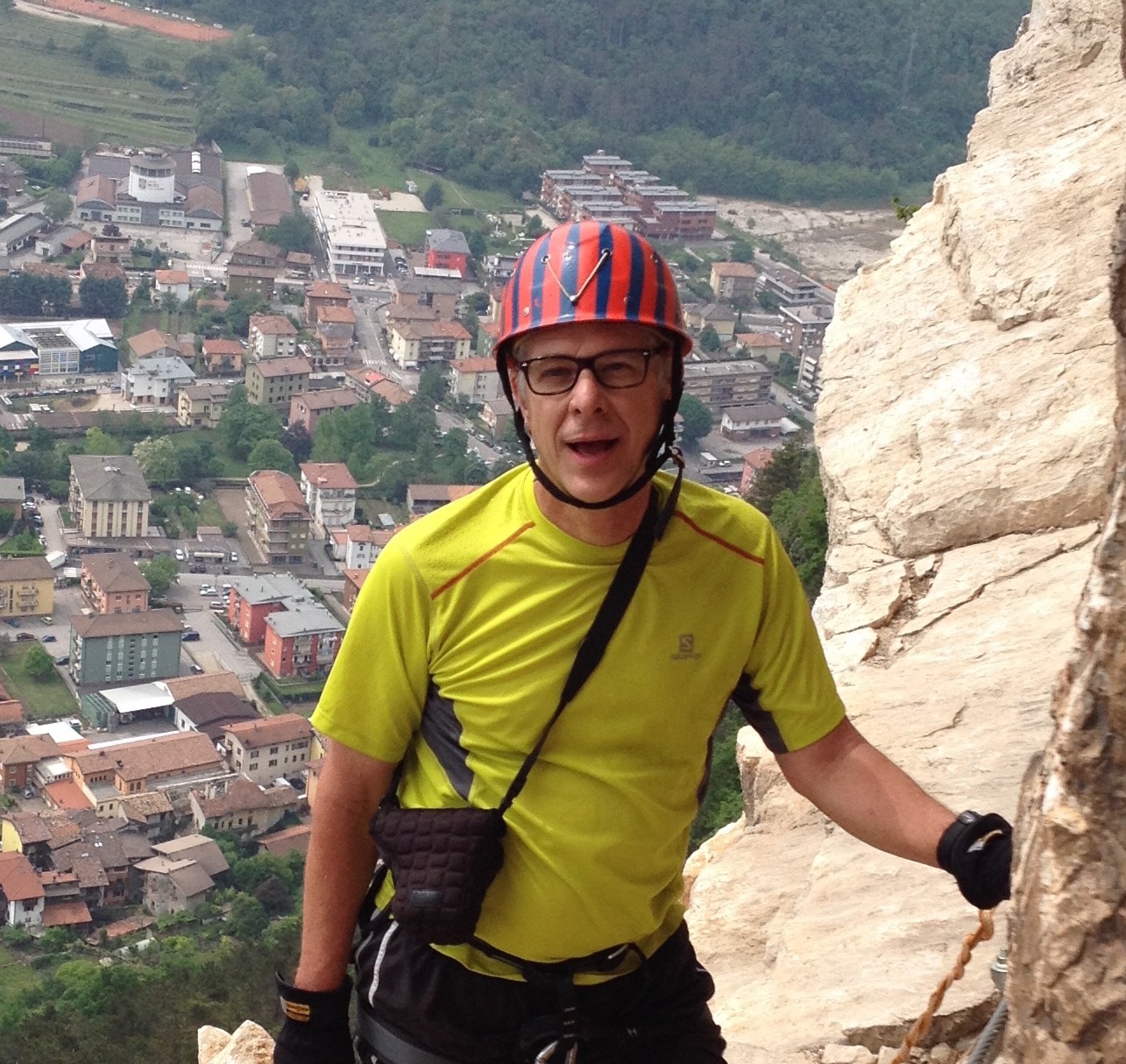
Exercise is not the same as physical activity. Wise Athletes must continue to use all of our physical skills to retain them long into life. Instead of investing in carefully planned strength training, cardio training, balance training, mobility training….just get out into nature and use your body in ways that are unpredictable…that challenge your brain.
Dr. Scott Grafton
Dr. Scott Grafton, Distinguished Professor of Psychological & Brain Sciences at the University of California, Santa Barbara, directs the Action Lab, which works on the neuroscience of goal-directed movement. Professor Grafton is also the author of Physical Intelligence: The Science of How the Body and Mind Guide Each Other Through Life.
What is Physical Intelligence?
Dr. Grafton shares how ‘physical intelligence’ works, what you can do to hold on to old physical skills as well as learn new fun things to do, and why it’s so important for all of us as we age.
Physical intelligence is the brain’s ability to figure out how to perform physical skills better and better. It learns by doing.
But we forget. We lose skills we don’t use. That results in losing basic life skills if we withdraw from life. The more we pull back from activities that might result in injury the less capable we become over time. We have to find a way to stretch ourselves in what we already know or in learning new activities.
Exercise is not enough. We need unpredictable environments. An opponent across the net. An unstable trail. Something that engages the brain in adapting skills to accommodate new information. We retain physical skills and we exercise the brain.
- Smart Practice — spending time wisely that provide the best result….only practicing the hardest skills…not wasting time on the easy stuff because it’s fun
- Variability in Practice — it’s good to have randomness in the practice to maximally stimulate the brain to learn faster
- Good sleep is important for consolidating new physical skills
- We are born to learn physical skills. We are great at it. But we are also great at forgetting. Use it or lose it.
- Find a way to stretch your physical capabilities (which will stretch your mental capabilities as well) to keep from shrinking down to a fragile person who is afraid and incapable of operating in the world
- Why do people fall down? Strength? Balance? Vision? No: its a loss of skill in moving through real-world environments.
Outline of Discussion
- you were talking about how exercise is not the same as physical activity ….as a “exerciser” I found that a little annoying
- eventually I understood that you were diagnosing the problem I have been complaining about publicly for the last 6 months… about how I have lost athleticism as I have focused more and more on just lifting weights and riding a stationary bike, and not doing sports anymore
- you just returned from a trip to the mountains. How did it go? Was this your annual trip to you mentioned in your book? And, when you tell us about that also tell our audience how you came to know so much about physical intelligence
- I admit to being a bit jealous of your trip. So much so that I had to brag to you earlier about the mountains I have climbed in my life, but the truth is I regret feeling that I had to give it up as too hard for my aging body. But you are still doing it. How? And please tell us why.
- you are doing it right. Am I am not going it right, which brings us to the point of our talk today. How should wise athletes do to find a good glide path to perhaps slowing but as slowly as possible….staying staying strong both physically and mentally as long as possible?. So , Healthy aging is not from a treadmill. We need complex physical engagement for the body and brain. And the mindset, the attitude matters….is that just for motivation or does the mindset affect the benefit we get form doing physical activity?
- in the context of aging, when we’re told to do our “exercise” for our health, we aren’t being given completely good advice, are we?
- physical activity that engages the brain is important….use it or lose it seems to apply broadly to the human condition.
- I used to think the declines of the body and mind was just a natural progression…unavoidable. But now I wonder if we are doing it to ourselves somehow. Leaping past the question of why the body “gets old” and just start with the thought that because my joints hurt, I stop doing certain activities…and maybe that is the beginning of the end.
- I stop using my body the way I used to, and pretty quickly I lose the ability to do it. My mom followed this path to doing less and less. The less she did, the more things that felt dangerous…which led to further reductions in activity and more lost physical skills. Are we doing it to ourselves, dr grafton?
Want to support the show?
If you are enjoying WiseAthletes, please leave us a review. And, be sure to check out our FullScript supplements link to see the amazing prices on the best brands on the planet.

